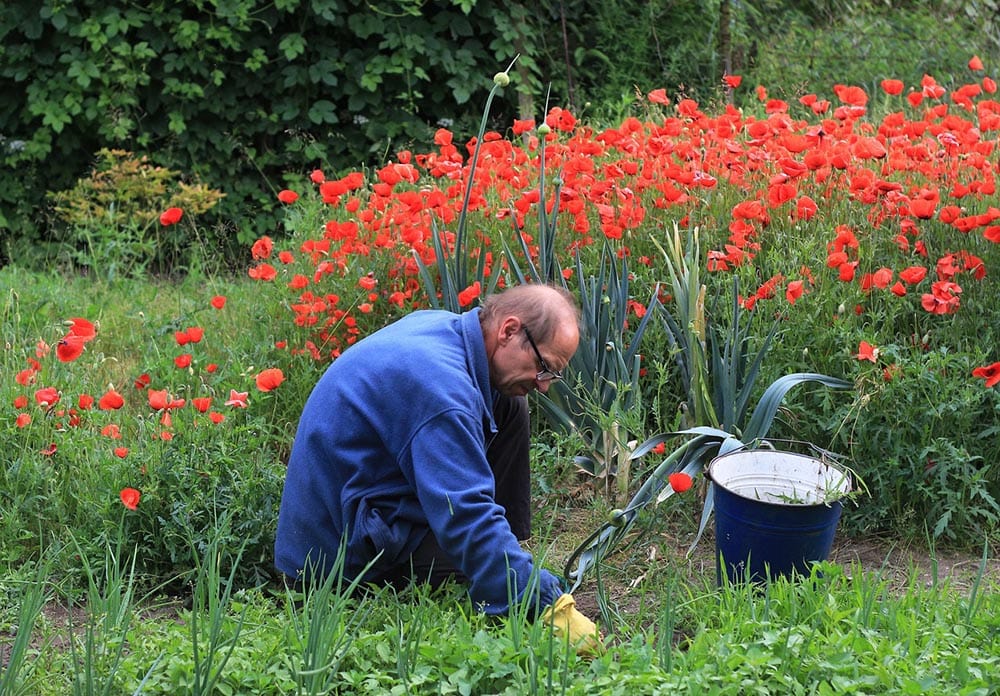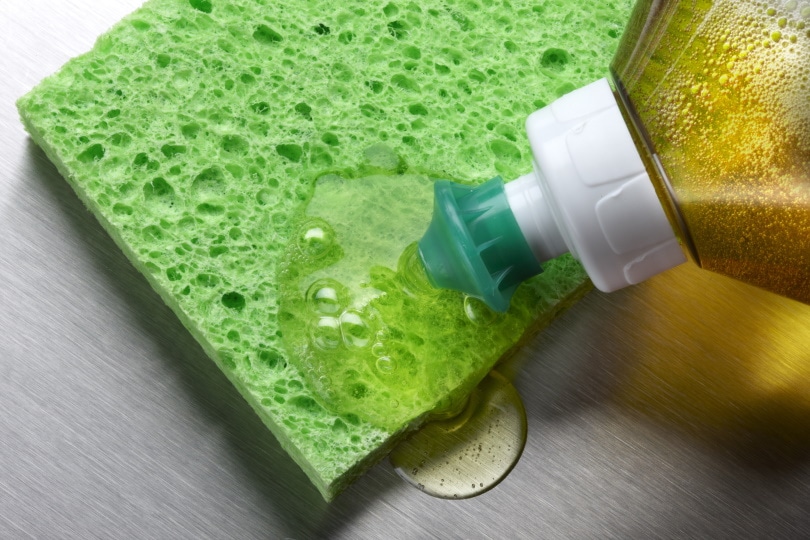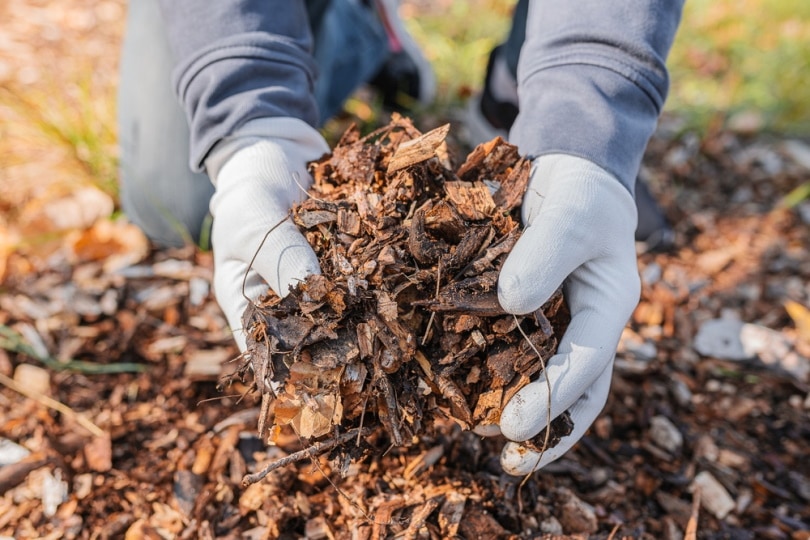What Kills Weeds Permanently? 6 Methods That Work
-
Kristin Hitchcock
- Last updated:

Weeds are a constant nuisance to anyone with a lawn or garden. Weeds not only ruin any landscaping you attempt, but they can also cause serious problems for your plants. Weeds compete for nutrients with other plants, and they often win. Therefore, if you want your garden or lawn to grow as well as possible, the weeds must go.
However, continuously applying weedkillers can be a pain. Instead, you may want to try a permanent weed-killing option. There are many commercial options out there that work as preventative weed killers, but many gardeners prefer to use more natural methods (especially if you plan to eat the foods in your garden).
Here are some of the most effective and safest methods for killing weeds permanently.
The 6 Items That Kill Weeds Permanently
1. Newspaper

While this method is time-consuming, mulching your garden or lawn with newspaper can prevent weeds from occurring. Weeds cannot poke through the layer of newspaper, but the newspaper will decay eventually, helping the soil.
Of course, this method does require reapplication—newspapers will not last forever. Plus, depending on your area, a newspaper may not last very long at all. Therefore, if you live in a wetter climate, this method may not be for you.
Furthermore, there is also the problem with finding and shredding enough newspaper to mulch your yard. Many people may also not like the look of the newspaper, so mulching with newspapers isn’t terribly common, despite being effective. However, if these problems don’t apply to you, this is the method we recommend.
2. Vinegar
Vinegar is often a suggested method for killing unwanted weeds and does work well in some cases. It can kill plants that have leaves out of the ground. However, it only works well on shallow roots and weaker plants. Strong plants can typically withstand vinegar.
To use vinegar, simply mix two cups of vinegar with ½ tablespoon of dish soap. This will create a foamy, vinegar-smelling liquid. Next, combine the ingredients into a plastic spray bottle and spray them on the weeds. Be careful, as this mixture will kill any plant it touches—not just weeds. Of course, it will likely not harm very large plants, like trees. However, we do recommend being safe.
Vinegar only kills the part of the plants that it contacts, so it cannot kill the roots. However, without the roots, many plants will not grow back. Still, some will grow back, so keep this in mind.
We recommend applying this vinegar on a warm day, as this is when it works best. You may want to apply it several weeks in a row to kill weeds that return. However, it will kill many on the first try, especially if you apply it on the same day. This herbicide works best against plants like dandelions and crabgrass. Do not saturate the weeds with the mixture. Instead, just spray enough to moisten the foliage—you do not need tons of the mixture.
3. Dish Soap

Like in the previous formula, dish soap is toxic to many plants. Therefore, it can work as a good herbicide in many cases. We do recommend mixing it with a variety of different materials, as this helps it work a bit better. For instance, we particularly recommend adding it to Epsom salt, as this material is also toxic to plants.
You can mix dish soap and Epsom salt with water. However, we recommend mixing them with vinegar, as this holds more herbicide properties. With these three ingredients together, you will kill many different weeds, which is exactly what you’re aiming for.
We recommend a ratio of a gallon of vinegar, one cup of salt, and one tablespoon of Dawn dish soap. However, you don’t have to be extremely accurate with these measurements. In practically any amount, these materials will be toxic to many weeds.
The dish soap works by helping the vinegar and salt cling to the weeds, which are the ingredients that actually kill the plant. We recommend using this mixture on a warm day, as this will affect the weeds faster and longer.
4. Bleach
Bleach is also known as a chemical that kills many different types of weeds. It can be effective against weeds long term because it directly affects the pH of the soil, making it too alkaline for weeds to grow, effectively killing them.
Because bleach works on the soil, it can affect neighboring plants. It does not have to directly touch a plant to affect it. Therefore, we only recommend putting it where you really don’t want any plants to grow.
Furthermore, this chemical is dangerous. You’ll need to wear gloves and other protective clothing while handling it. You also shouldn’t allow pets or children into the area, making this a much more hazardous option.
If you decide to use this method anyway, we recommend applying it undiluted. It should kill the plant quickly, though you should wait for them to turn brown before pulling them from the ground. If you’re trying to grow plants after using bleach, flush the area with water. This can remove the bleach from the ground, though this is not certain. It depends on the soil.
5. Mulch

Placing mulch prevents weeds from popping through the surface of your garden, as it blocks sunlight. You can place it around your garden after your plants have sprouted to keep weeds from sprouting. Plus, mulch is heavy and doesn’t decay quickly. Therefore, it should be effective for a long time.
You can also use grass clippings as mulch, instead of purchasing a commercial option. Grass clippings do decay a bit faster but they are free and readily available to most people. Plus, by decaying, they put nutrients back into your dirt.
Do not place mulch right up against stems and trunks, as this can damage the plants. Leave at least three inches. Apply mulch as needed, based on how long it takes to decay.
6. Landscaping Fabric
If you’re landscaping an area, you may want to use landscaping fabric to prevent weeds. This fabric works by being a barrier to the soil. However, it allows water and oxygen to reach your plant without a problem. Often, this fabric lasts a very long time and does not decay. However, setting it up and planting on top of it can be a bit more work than some other methods.
Still, it is one of the most straightforward options for preventing weed growth.
Conclusion
We highly recommend utilizing multiple methods we’ve listed above when controlling weeds. All weeds are different, and some react better to some methods than others. Therefore, by varying your methods, you’ll be able to control weeds effectively.
For instance, you may want to use both mulch and landscaping fabric on your landscaping or garden. These will prevent weeds from growing. However, you may also want to keep vinegar on hand to kill any weeds that poke through despite these methods.
None of these methods is fool-proof, though you can get pretty close by using multiple options at once.
See also:
- What Are the Best Mulches for Grass Seed? 6 Great Options
- Does Boiling Water Kill Weeds? What You Need to Know!
Featured Image Credit: radekkulupa, Pixabay
Contents

